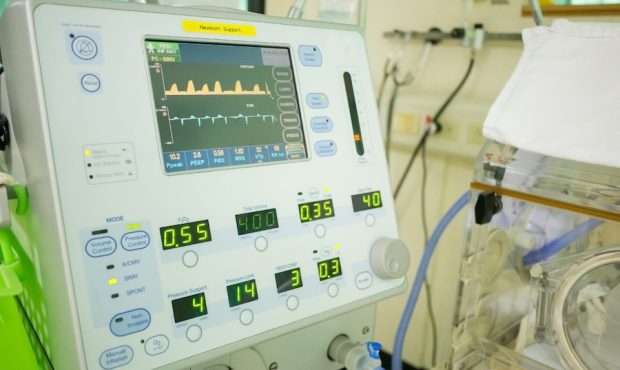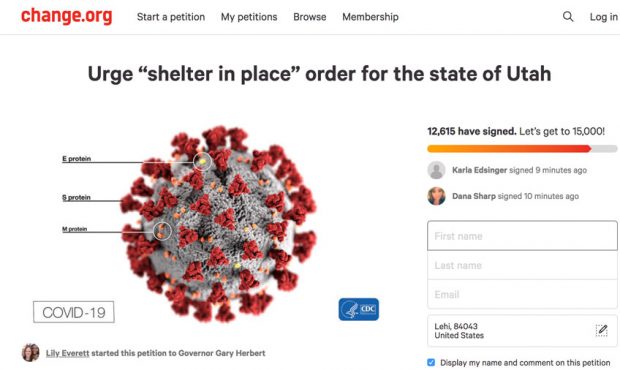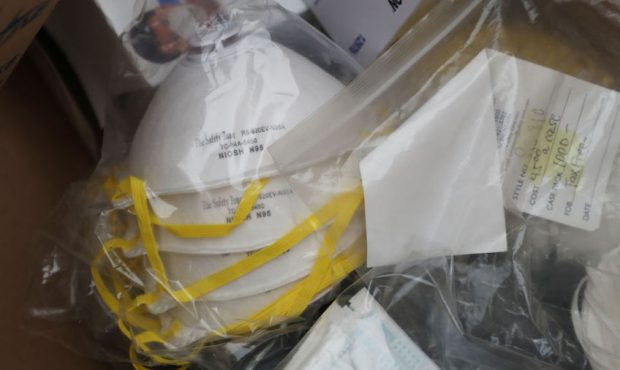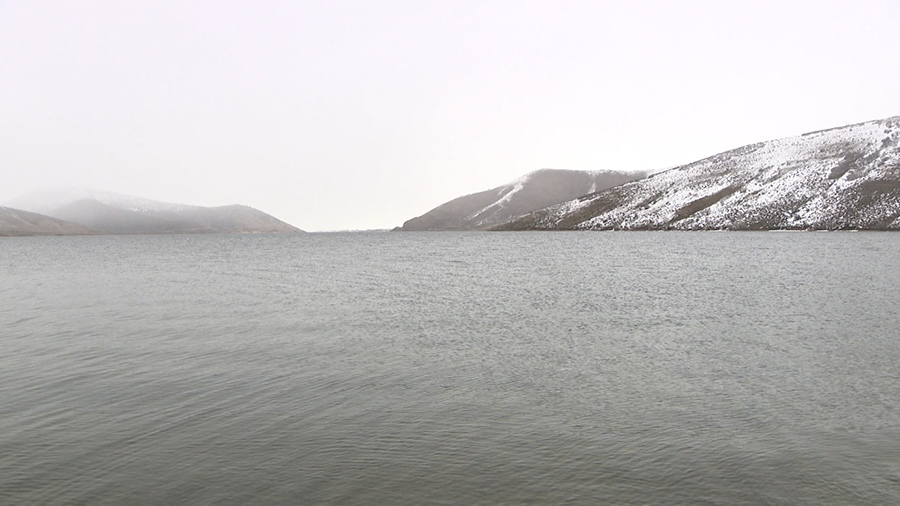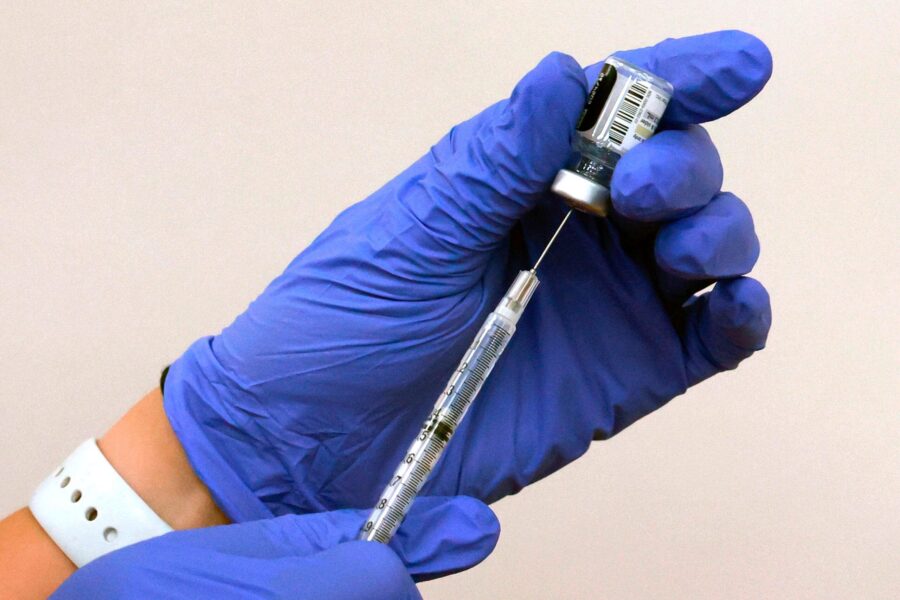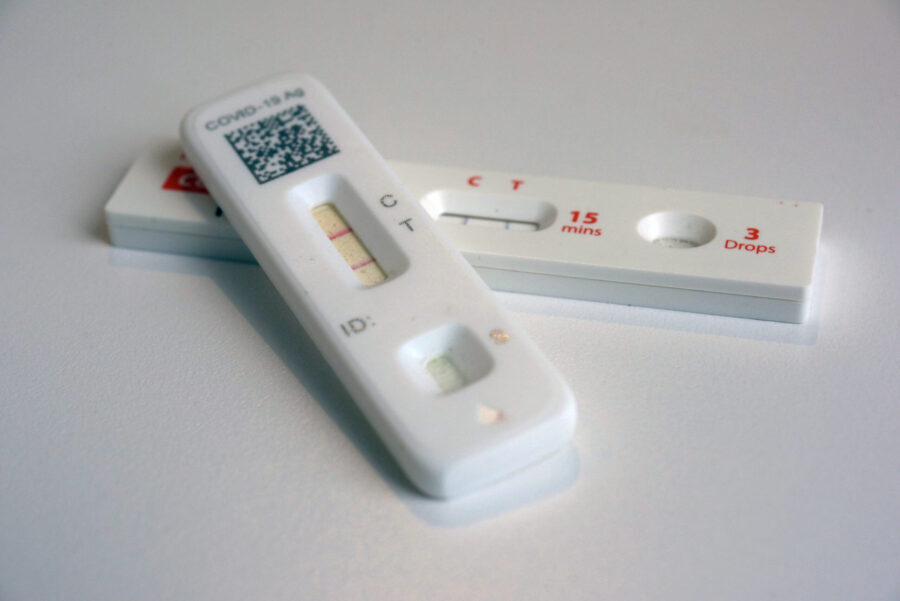CDC Recommends Americans Wear Masks In Public
Apr 3, 2020, 7:40 PM | Updated: 7:47 pm
SALT LAKE CITY, Utah – All of those cloth masks some of our neighbors have been sewing to slow the spread of COVID-19 may be in demand after all. Until Friday, officials with the Centers for Disease Control had said Americans do not need to wear masks unless they are sick or a healthcare provider.
But now, the CDC recommends wearing a face mask on a voluntary basis.
That recommendation is for cloth masks or even a bandanna — not the medical masks or N95 respirators worn by healthcare professionals.
Our communities need to reserve those masks for the people on the front lines of the pandemic.
But one infectious disease doctor believes a cloth mask is not a bad idea, as long as we don’t get a false sense of security.
“It really is not a benefit to the person wearing the mask,” said Dr. Eddie Stenehjem with Intermountain Healthcare. “It’s a benefit to the community.”
Stenehjem said if Utahns want to wear a cloth mask or bandanna when they go to the grocery store or other places where you might encounter people, it’s not a bad idea.
“I think wearing a mask is completely OK and appropriate,” he said. “I think it’s more socially responsible to stay at home and stay safe like the governor has recommended.”
A cloth mask does not protect the person wearing the mask from catching COVID-19, Stenehjem said. But it can help that person from spreading germs to others.
“The use of those is really to prevent the spread of virus from a person who has a virus, and hasn’t shown symptoms yet, and spread that virus into the community,” he said. “So, it’s another way to protect the community from transmission of viruses.”
However, wearing a mask is not as protective as staying home, staying at least six feet from other people and avoiding large groups.
“This is an added benefit to our community, and it should not by any means change our view of how important social distancing is,” Stenehjem said. “This does not replace social distancing.”
There’s not a lot of evidence on the difference a mask makes, he said.
“We still don’t know the impact on the community level of wearing masks,” Stenehjem said. “So, it’s an area of science that we just don’t have a definitive answer.”
That’s why we had not seen a recommendation from the CDC or World Health Organization until Friday. Social distancing remains our best weapon in this battle.
“This is going to be the new norm for a number of weeks, and whether we use masks or not it’s social distancing at the core,” said Stenehjem.
#DYK? CDC’s recommendation on wearing a cloth face covering may help protect the most vulnerable from #COVID19. Watch @Surgeon_General Jerome Adams make a face covering in a few easy steps. https://t.co/bihJ3xEM15 pic.twitter.com/mE7Tf6y3MK
— CDC (@CDCgov) April 4, 2020
If we stay home and stay safe, we do not need to wear masks. If you run emergency errands, it’s not a bad idea to wear a cloth mask.
Coronavirus Resources
- Have you or a family member been affected by coronavirus issues in Utah? KSL TV wants to hear from you. Contact KSL by emailing social@ksl.com.
- What is COVID-19? Here’s What You Need To Know To Stay Healthy
- What We Know And Don’t Know About The Coronavirus
- Four Common Coronavirus Questions Answered
- The latest coronavirus stories from KSL TV can be found at our Staying Safe: Coronavirus section.
- Your Life Your Health: How can parents prepare their home, children against coronavirus?
How Do I Prevent It?
The CDC has some simple recommendations, most of which are the same for preventing other respiratory illnesses or the flu:
- Avoid close contact with people who may be sick
- Avoid touching your face
- Stay home when you are sick
- Cover your cough or sneeze with a tissue and then throw the tissue in the trash
- Wash your hands often with soap and water for at least 20 seconds, especially after going to the bathroom, before eating, and after blowing your nose, coughing or sneezing. Always wash your hands with soap and water if your hands are visibly dirty.
- If soap and water are not readily available, use an alcohol-based hand sanitizer with at least 60% alcohol.
How To Get Help
If you’re worried you may have COVID-19, you can contact the Utah Coronavirus Information Line at 1-800-456-7707 to speak to trained healthcare professionals. You can also use telehealth services through your healthcare providers.
Additional Resources
If you see evidence of PRICE GOUGING, the Utah Attorney General’s Office wants you to report it. Common items in question include toilet paper, water, hand sanitizer, certain household cleaners, and even cold medicine and baby formula. Authorities are asking anyone who sees price gouging to report it to the Utah Division of Consumer Protection at 801-530-6601 or 800-721-7233. The division can also be reached by email at consumerprotection@utah.gov.

